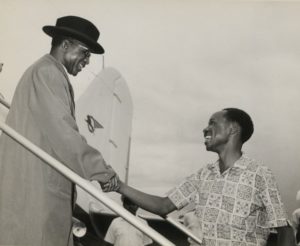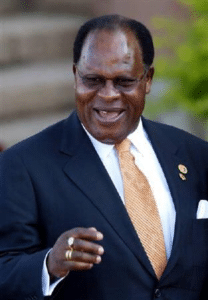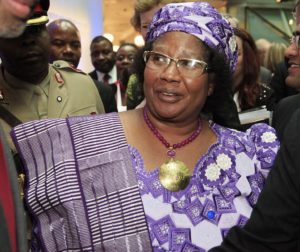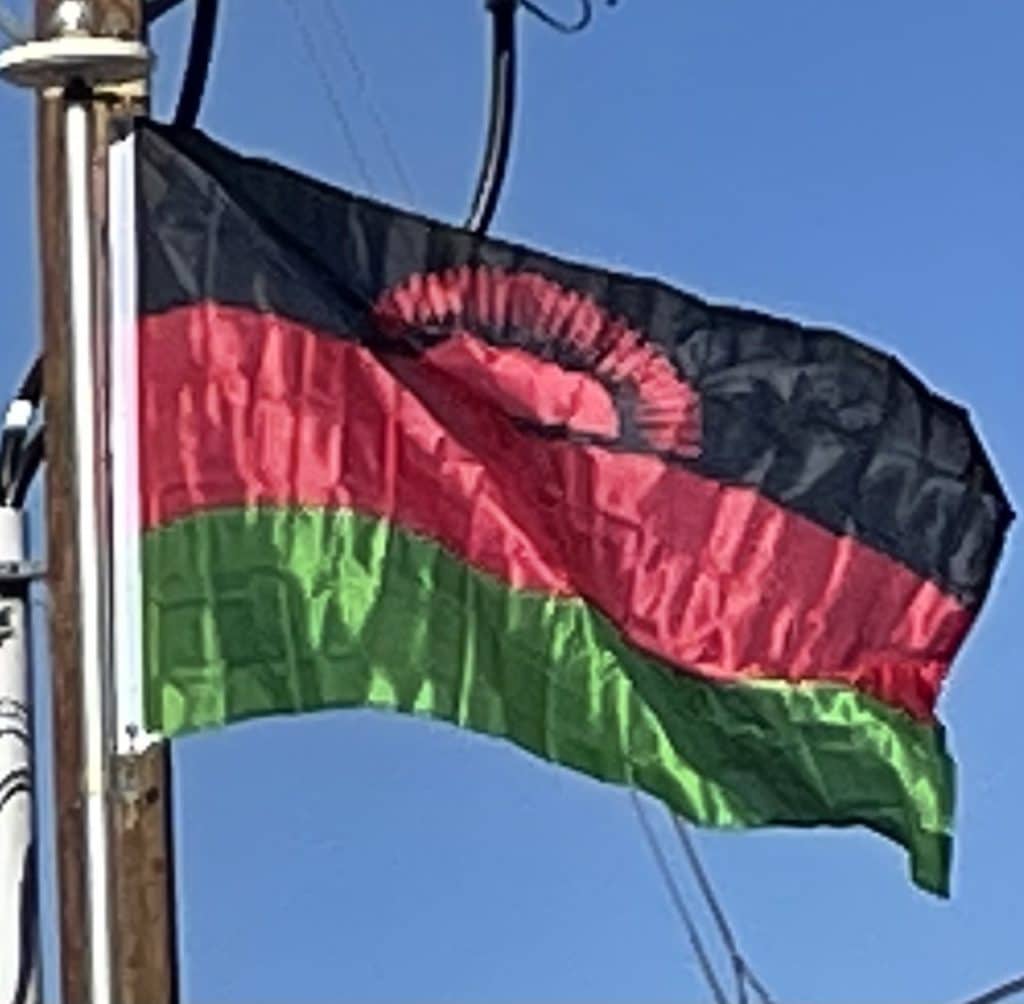In 1961, Banda’s Malawi Congress Party (MCP) gained a majority in the Legislative Council elections and Banda became Prime Minister in 1963. The Federation was dissolved in 1963, and on 6 July 1964, Nyasaland became independent from British rule and renamed itself Malawi, and that is commemorated as the nation’s Independence Day, a public holiday. Under a new constitution, Malawi became a republic with Banda as its first president. The new document also formally made Malawi a one-party state with the MCP as the only legal party. In 1971, Banda was declared president-for-life. For almost 30 years, Banda presided over a rigidly totalitarian regime, which ensured that Malawi did not suffer armed conflict. Opposition parties, including the Malawi Freedom Movement of Orton Chirwa and the Socialist League of Malawi, were founded in exile.

Malawi’s economy while Banda was president was often cited as an example of how a poor, landlocked, heavily populated, mineral-poor country could achieve progress in both agriculture and industrial development. While in office, and using his control of the country, Banda constructed a business empire that eventually produced one-third of the country’s GDP and employed 10% of the wage-earning workforce.
Under pressure for increased political freedom, Banda agreed to a referendum in 1993, where the populace voted for a multi-party democracy. In late 1993, a presidential council was formed, the life presidency was abolished and a new constitution was put into place, effectively ending the MCP’s rule. In 1994 the first multi-party elections were held in Malawi, and Banda was defeated by Bakili Muluzi (a former Secretary General of the MCP and former Banda Cabinet Minister). Re-elected in 1999, Muluzi remained president until 2004, when Bingu wa Mutharika was elected. Although the political environment was described as “challenging”, it was stated in 2009 that a multi-party system still existed in Malawi. Multiparty parliamentary and presidential elections were held for the fourth time in Malawi in May 2009, and President Mutharika was successfully re-elected, despite charges of election fraud from his rival.

President Mutharika was seen by some as increasingly autocratic and dismissive of human rights, and in July 2011 protests over high costs of living, devolving foreign relations, poor governance and a lack of foreign exchange reserves erupted. The protests left 18 people dead and at least 44 others suffering from gunshot wounds. In April 2012, Mutharika died of a heart attack; the presidential title was taken over by Vice-President Joyce Banda (not related to the former president Banda).

In 2014 Joyce Banda lost elections (coming third) and was replaced by Peter Mutharika, the brother of ex-President Mutharika.
Geography:
Malawi is a landlocked country in southeastern Africa, bordered by Zambia to the northwest, Tanzania to the northeast and Mozambique to the south, southwest and southeast.
The Great Rift Valley runs through the country from north to south, and to the east of the valley lies Lake Malawi (also called Lake Nyasa), making up over three-quarters of Malawi’s eastern boundary. Lake Malawi is sometimes called the Calendar Lake as it is about 587 kilometers (365 mi) long and 84 kilometers (52 mi) wide. The Shire River flows from the south end of the lake and joins the Zambezi River 400 kilometers (250 mi) farther south in Mozambique. The surface of Lake Malawi is at 457 meters (1,500 ft) above sea level, with a maximum depth of 701 meters (2,300 ft), which means the lake bottom is over 213 meters (700 ft) below sea level at some points.
